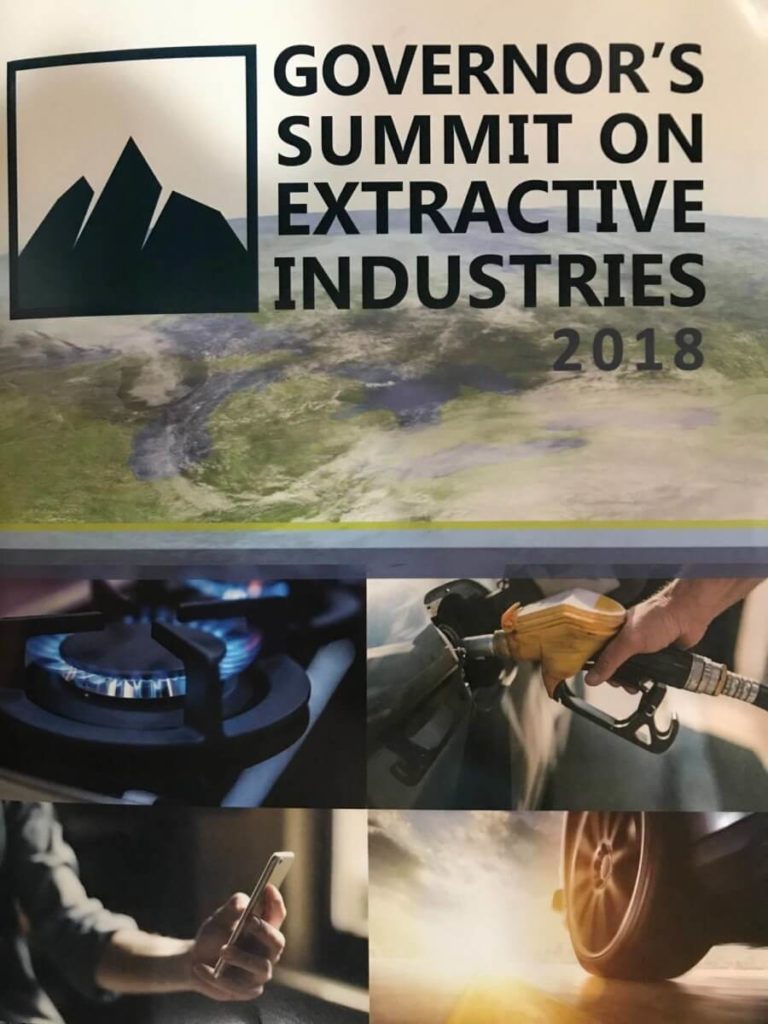Leaders discuss Michigan’s ‘buried treasures’ as key to high-tech future

Contact: Ed Golder (Michigan Department of Natural Resources), 517-284-5815
Agency: Natural Resources
Feb. 13, 2018
FIRST-EVER CONFERENCE SPOTLIGHTS NATURAL RESOURCE-BASED INDUSTRIES’ ROLE IN STATE’S ECONOMY, COMMUNITIES AND JOB GROWTH
State policy leaders and industry and academic experts today dug deep into the importance and potential of Michigan’s abundant underground resources in building Michigan’s economic future.
Hundreds of companies around the state, mostly locally based small businesses, extract oil, natural gas and minerals – metallic minerals like gold, nickel and iron ore, and nonmetallic minerals like gypsum, limestone, salt, sand, gravel and clay – from the earth.
The Governor’s Summit on Extractive Industries – hosted today at the Kellogg Hotel and Conference Center in East Lansing – served as an opportunity to increase awareness of these industries in Michigan, encourage investment and growth in the extractive sector, protect the state’s natural resources through sound policy, and build collaborative partnerships among industries, communities and government.
“Gov. Snyder called for expanding Michigan’s natural resource-based economy, and the extractive industries are a key part of that,” said Michigan Department of Natural Resources Director Keith Creagh. “This summit begins an important conversation about how we can better promote responsible use of Michigan’s minerals for the long-term benefit of communities around the state.”
Creagh noted the historic contribution of the Michigan Natural Resources Trust Fund, which since 1976 has used revenues from oil and gas development on public lands for the expansion of outdoor recreation in every part of Michigan. Those same revenues now support Michigan’s state parks system. More recent developments, like the Eagle mine in Marquette, have delivered significant local and statewide benefits through the state’s Rural Development Fund, which directs taxes on mineral development to the support of long-term rural economic development.
Michigan’s rich geology affords the state a wealth of minerals, with each of the state’s 83 counties typically producing some kind of mineral. Industry leaders said today’s conference was a welcome, new type of dialogue about next steps toward becoming more successful.
“All the high-tech industries leading our society forward – advanced battery technology, wind and solar power, autonomous cars and advanced manufacturing – depend on key components that come from mining and quarrying,” said Doug Needham, president of the Michigan Aggregates Association. “Michigan has an exciting opportunity because of the diversity and abundance of raw building blocks we can produce close to all these industries.”
The daylong summit featured:
- Michigan legislative leaders discussing how to ensure operators have clarity and certainty in the state’s permitting and regulatory processes.
- Michigan university leaders looking at how the state’s colleges and universities are working to support extractive technology and prepare students for tomorrow’s workforce.
- State regulators offering an overview of Michigan’s stewardship program, as well as the ways they work with environmental laws to protect Michigan’s air, land and water when mineral resources are developed.
“We want to help communities and potential workers see the opportunities and benefits these industries bring,” said Erin McDonough, president of the Michigan Oil and Gas Association. “This starts by addressing public perceptions, and that’s what this summit is all about.”
Industry experts examined the extractive industries’ contribution to the state’s economy. Beyond providing direct and indirect employment, experts noted that the raw materials developed here are keys to Michigan’s past, present and future.
Creagh described today’s summit as the successful first step in a sustained, long-term effort to help companies and industries in Michigan toward smart, strategic growth.
“In the same way we looked to the oil and gas sector to help support outdoor recreation through the Natural Resources Trust Fund, we now have an opportunity to grow our industries and wisely invest the proceeds from our nonrenewable commodities to help secure a better future for Michigan’s rural communities,” Creagh said.
The Michigan Department of Natural Resources is committed to the conservation, pro
tection, management, use and enjoyment of the state’s natural and cultural resources for current and future generations. For more information, go to www.michigan.gov/dnr.
